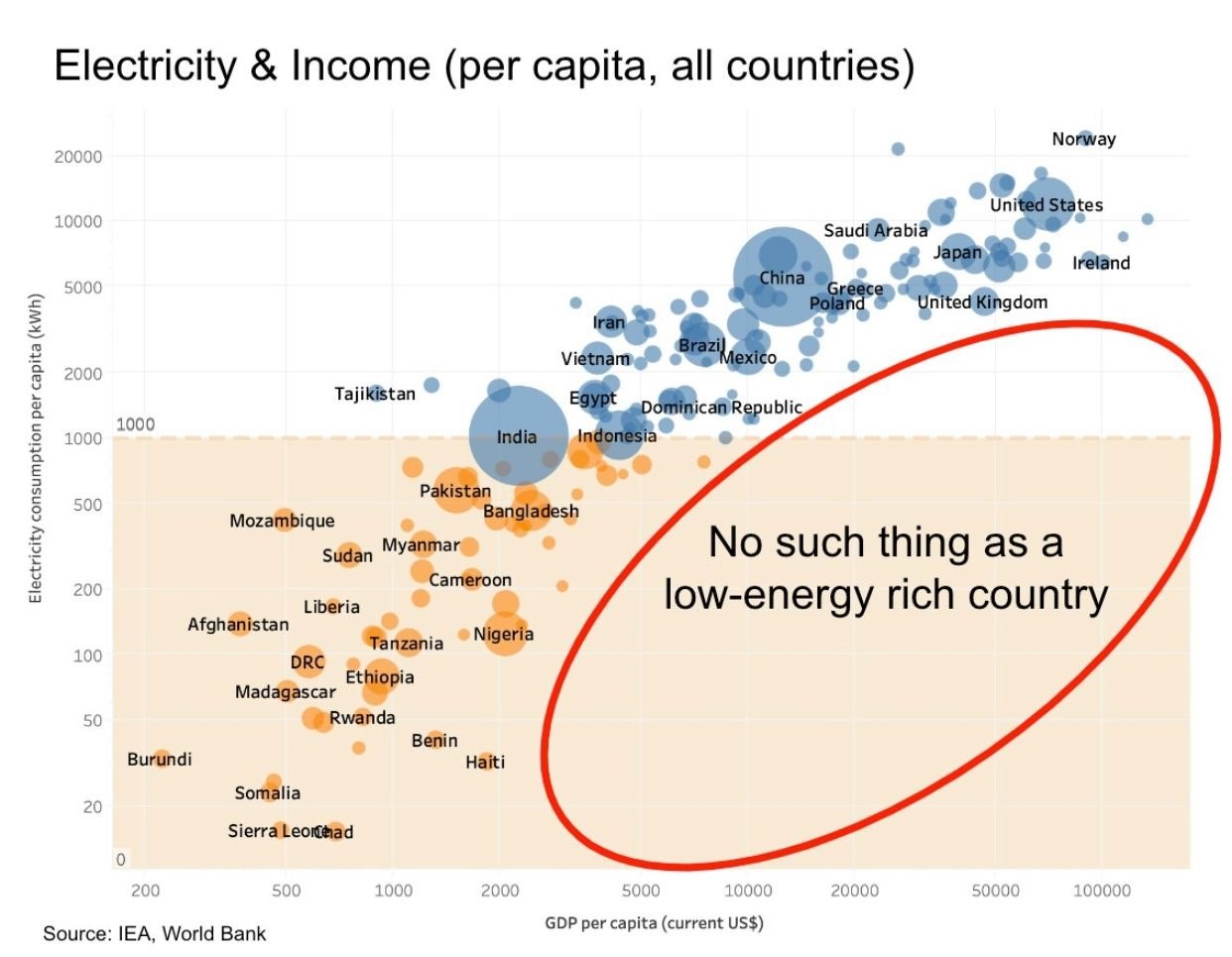Last month, New York Times climate reporter David Gelles wrote about the enormous effect A.I. is having on global energy demand, which led to the following discussion between Cascade Institute Executive Director Thomas Homer Dixon, Director of the Cascade Institute’s Geothermal Energy Office in Ottawa Peter Massie, and Cascade Institute Energy Systems Visiting Fellow Ian Graham.
Peter Massie: This is an important dynamic, and might be part of a broader shift. In addition to “more” energy, I wouldn’t be surprised if we see an increasing share of demand for baseload power.
Data centres, crypto, and direct air capture are all capital intensive. As a result, I expect the people that own them will want to run them 24/7 to maximize utilization and minimize costs. There might be potential for some demand response, but I expect the net result will be rising demand for baseload power.
Of course, geothermal is well positioned to deliver—Microsoft recently signed a deal for geothermal power to supply a new data centre in Kenya.
Thomas Homer-Dixon: A.I. server farms, along with crypto mining, are the biggest drivers of rising electricity demand. The build-out figures are astonishing. I expect there’s going to be an inflection point—upwards, not downwards, as long assumed—in energy consumption per capita in rich economies. That’s a powerful riposte to the soft-energy path folks, who’ve argued that we’re in the process of substantially decoupling GDP and energy growth per capita.
(The deep irony: We’re going to be building server farms to support AI-generated realities —including artificial natural worlds—that we can live within as we progressively destroy the real natural world around us by supplying the energy to create those realities.)
Ian Graham: A.I.is a huge energy hog—as are cryptocurrency mining operations, ordinary data centres – and forecasts I’ve seen project huge growth in essentially baseload electricity demand in part driven by data centres.
There is also a big correlation between per capita GDP and electricity generation – the wealthier you get, the more electricity you consume.
It’s pretty well power law growth (Power consumed per capita ~ GDPx) see this chart for example. So, if you want poorer countries to get wealthier, then their electrical energy consumption will grow exponentially to make that happen. This is illustrated by the following IEA / World Bank chart.
I bet you’d see the same scaling behavior if you looked at historical energy consumption for a given society (e.g. U.S.).
I think you’d have to change something fundamental to break this behaviour – or to even just reduce the size of the exponent ‘x’ . . .


Isn’t it also evident that the drive for the AI and associated technologies comes from a truly small number of over-wealthy individuals and groups who do not include any thought about how this push will affect on the vast majority of the globe’s inhabitants – toward the destruction of the world we live in? And all of this has been accelerated through the current period of economic control by what has become known as ‘neoliberalism.’